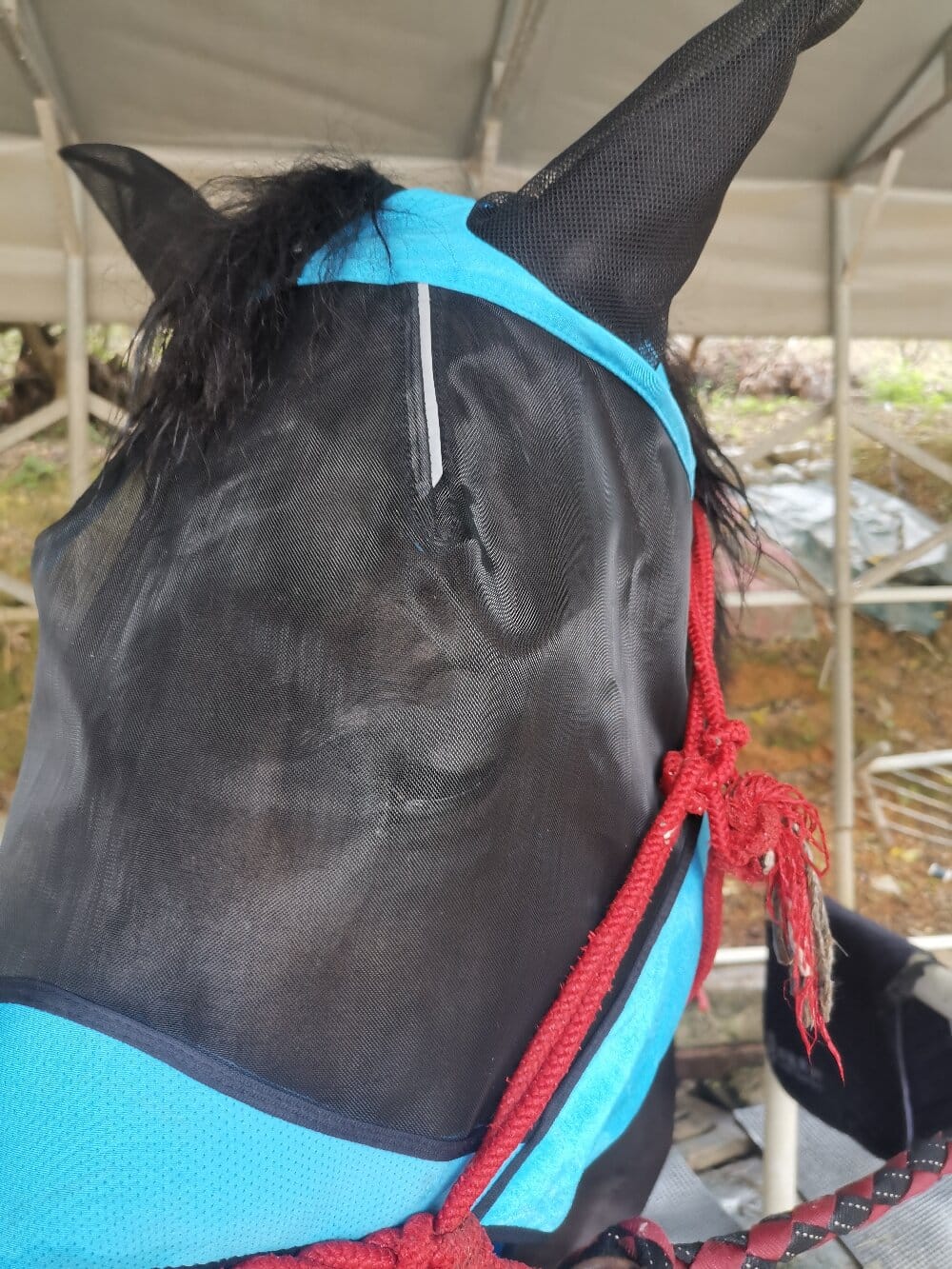As a horse owner, protecting your equine companion from pests is a top priority. A horse fly mask is an essential piece of gear designed to shield your horse’s face and eyes from irritating flies, mosquitoes, and UV rays. Not only does it improve comfort, but it also prevents infections and stress caused by relentless insects. In this article, I’ll share industry insights on why these masks are indispensable, how to choose the right one, and the benefits they offer beyond basic protection.
The Importance of Protecting Your Horse’s Eyes and Face
Horses are highly sensitive to pests, especially around their eyes, ears, and muzzle. Flies can cause significant discomfort, leading to:
- Excessive head shaking and rubbing against surfaces
- Eye infections from constant irritation
- Stress and reduced performance in training or competitions
A well-fitted fly mask acts as a barrier, preventing insects from landing on vulnerable areas while allowing for clear vision and breathability.
Choosing the Right Horse Fly Mask: Key Features to Look For
Not all fly masks are created equal. Here’s what I’ve learned from industry experts about selecting the best one:
- Material: Opt for lightweight, breathable mesh that blocks UV rays.
- Fit: Ensure it covers the eyes, ears, and muzzle without restricting movement.
- Durability: Look for reinforced stitching and tear-resistant fabric.
- Visibility: Choose a design that doesn’t obstruct your horse’s peripheral vision.
Some advanced models even include extended neck covers for added protection.
Beyond Fly Protection: Additional Benefits of a Horse Fly Mask
While the primary purpose is pest control, a quality equine fly mask offers several secondary advantages:
- UV Protection: Protects against sunburn and conditions like photokeratitis.
- Allergy Relief: Reduces exposure to pollen and dust for horses with sensitivities.
- Wound Protection: Keeps flies away from healing injuries on the face.
These benefits make it a year-round essential, not just a seasonal accessory.
Common Misconceptions About Horse Fly Masks
Many owners hesitate to use fly masks due to myths I’ve encountered in the industry. Let’s debunk a few:
- “Masks impair vision.” Modern designs use fine mesh that doesn’t obstruct sight.
- “They’re only for summer.” Flies can be active in spring and fall, and UV rays are a year-round concern.
- “My horse doesn’t need one.” Even calm horses benefit from reduced stress and irritation.
Understanding these facts can help owners make informed decisions.
How to Maintain Your Horse’s Fly Mask for Longevity
Proper care extends the life of your fly protection gear. Follow these tips:
- Regularly rinse off dirt and sweat with mild soap.
- Inspect for tears or loose straps before each use.
- Store in a dry, shaded area to prevent material degradation.
A well-maintained mask ensures consistent protection and comfort for your horse.
Final Thoughts on Investing in a Quality Horse Fly Mask
From my experience, a horse fly mask is more than just a convenience—it’s a vital tool for your horse’s health and well-being. By choosing the right design and maintaining it properly, you can prevent discomfort, reduce vet visits, and keep your horse happy. Whether you’re a competitive rider or a casual owner, this small investment pays off in big ways.

